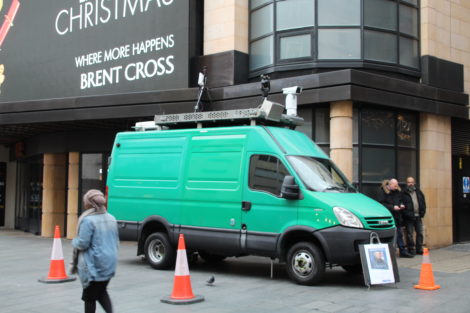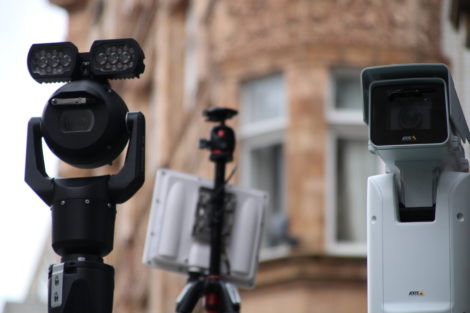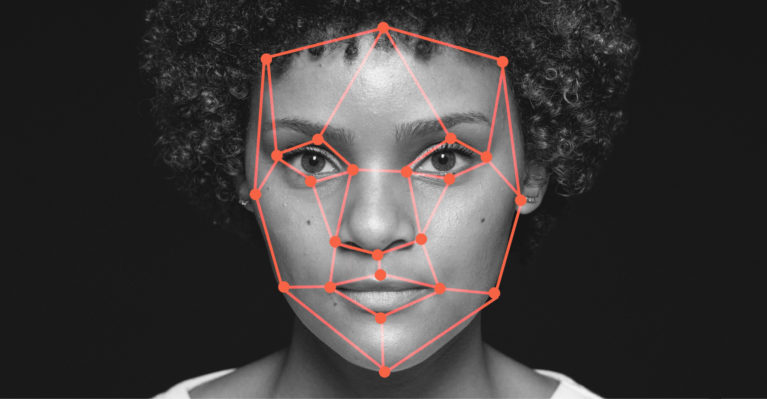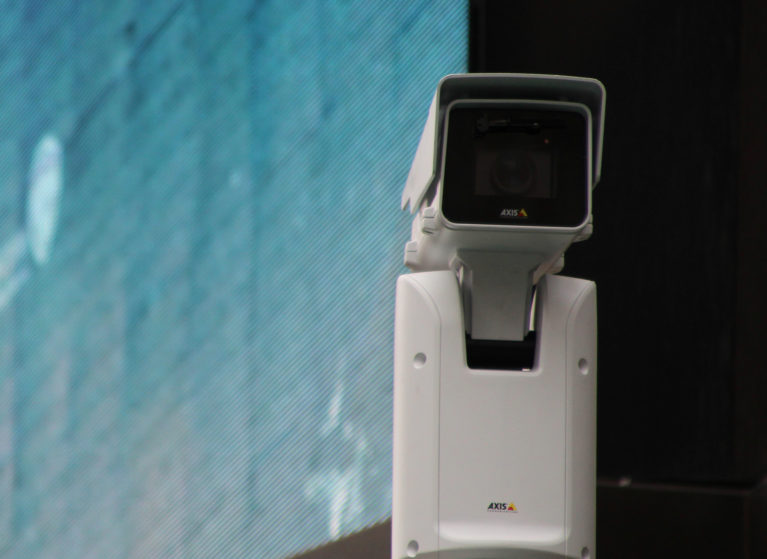Facial recognition
FIVE REASONS WHY FACIAL RECOGNITION MUST BE BANNED
Posted on 19 Jun 2020
Mass surveillance tool is discriminatory, intrusive and oppressive. It needs to be banned.
Next week, we’ll be back in court in the world’s first challenge to police use of facial recognition.
This technology is a mass surveillance tool and a threat to our rights, but it’s being used by police and private companies – and there are plans for this to expand.
The case is a crucial opportunity to highlight the very real dangers this technology presents, how it puts us all at risk and why it ultimately needs to be banned.
1. It’s discriminatory
Facial recognition technology is meant to identify people on a watchlist, but it’s worse at recognising people of colour. This means black people and other people of colour are more likely to be stopped due to a false match.
This replicates discrimination seen throughout UK policing.
Even if the technology were improved to stop this from happening, it would nevertheless become a tool to enhance surveillance of already over-policed communities.
Police are already using it in areas with large ethnic minority populations and have used it at Notting Hill Carnival.


When we know we’re being watched, we change our behaviour
2. It destroys our privacy
Recent polling commissioned by Liberty found 83 per cent of us say our privacy is important. Facial recognition threatens to destroy this. It goes far beyond CCTV and can be used to track and monitor us. It can identify anyone on a watchlist, whenever they go in view of a camera – and there are no restrictions on who can be on a watchlist.
All of us should feel able to go about our lives privately – this is our right. Mass use of facial recognition in public would destroy that forever.
3. It undermines our freedom of expression
When we know we’re being watched, we change our behaviour – in effect, we censor ourselves. We shouldn’t have to face the prospect of being watched and monitored to go where we want, whether that be to walk down the high street, to see friends or to attend a political event or protest.
Even the threat of enhanced surveillance (combined with an incredibly broad definition of “extremism”) threatens our right to free expression.
Mass surveillance doesn’t keep our society safe. Instead, it undermines the very rights and freedoms that allow us to stand up to power.


IBM, Amazon and Microsoft all halted their supply of facial recognition to police forces, citing fears over privacy, discrimination and potential racial profiling.
4. It’s spreading
South Wales Police continue to “pilot” facial recognition, which in reality amounts to operational use (they’ve used it 70 times), while the Metropolitan Police rolled it out in full earlier this year. Some police are even putting it on their smartphones so they can scan us wherever and whenever they choose.
Private companies are identifying and tracking people at shopping centres, football stadiums, museums, conference centres, shops and train stations.
It could soon be everywhere, fundamentally altering society and creating an oppressive mass surveillance state.
5. It’s oppressive by design
In recent weeks, responding to pressure from racial justice campaigners, tech giants IBM, Amazon and Microsoft all halted their supply of facial recognition to police forces, citing fears over privacy, discrimination and potential racial profiling.
But they are asking for a moratorium so laws can be created to regulate the technology.
Introducing laws to regulate the use of facial recognition will not address the fundamental threats this tech poses. Its very design undermines our rights.
Take action
Our fight to ban the use of this authoritarian tech continues in the courts and in our campaign.
If you can, please support the case by donating here.
Join us in standing up to power by signing our petition calling for a government ban on this mass surveillance tool.
I'm looking for advice on this
Did you know Liberty offers free human rights legal advice?
What are my rights on this?
Find out more about your rights and how the Human Rights Act protects them
Did you find this content useful?
Help us make our content even better by letting us know whether you found this page useful or not


